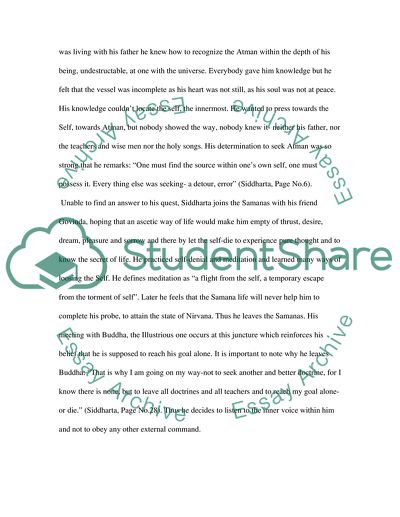Cite this document
(Siddharta by Hermann Hesse Book Report/Review Example | Topics and Well Written Essays - 2250 words, n.d.)
Siddharta by Hermann Hesse Book Report/Review Example | Topics and Well Written Essays - 2250 words. https://studentshare.org/literature/1540221-siddhartha-by-hermann-hesse
Siddharta by Hermann Hesse Book Report/Review Example | Topics and Well Written Essays - 2250 words. https://studentshare.org/literature/1540221-siddhartha-by-hermann-hesse
(Siddharta by Hermann Hesse Book Report/Review Example | Topics and Well Written Essays - 2250 Words)
Siddharta by Hermann Hesse Book Report/Review Example | Topics and Well Written Essays - 2250 Words. https://studentshare.org/literature/1540221-siddhartha-by-hermann-hesse.
Siddharta by Hermann Hesse Book Report/Review Example | Topics and Well Written Essays - 2250 Words. https://studentshare.org/literature/1540221-siddhartha-by-hermann-hesse.
“Siddharta by Hermann Hesse Book Report/Review Example | Topics and Well Written Essays - 2250 Words”. https://studentshare.org/literature/1540221-siddhartha-by-hermann-hesse.


